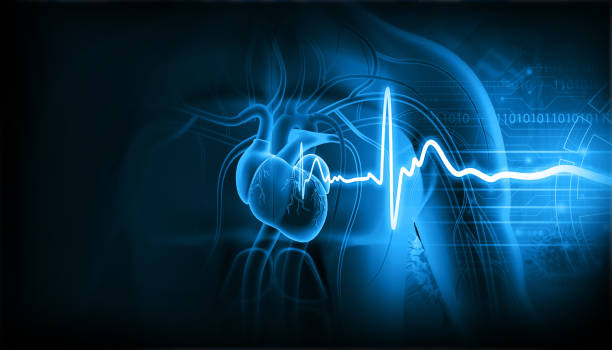Understanding the Significance of Cardiology in Modern Health Care Solutions
Cardiology plays an essential function in modern-day health care, specifically as cardiovascular disease continues to be the leading source of mortality worldwide. Developments in diagnostics and therapy have actually changed individual treatment, making it possible for earlier treatments and enhanced results. Moreover, the change towards precautionary cardiology empowers individuals to manage their health and wellness proactively. As technology remains to evolve, the assimilation of cutting-edge options may even more redefine cardiology's impact on public health, motivating a better evaluation of emerging fads and their ramifications.
The Occurrence of Heart Disease and Its Influence on Public Wellness
Heart condition stays the leading reason of death globally, its influence extends much beyond specific clients to influence public health and wellness systems and economies. The high frequency of heart problem positions a considerable pressure on health care sources, requiring raised funding for rehab, avoidance, and treatment programs. Public health and wellness campaigns should resolve risk aspects such as obesity, cigarette smoking, and less active lifestyles, which contribute substantially to the rising incidence of heart conditions.Moreover, the financial worry associated with cardiovascular disease is tremendous, encompassing not only straight clinical prices but likewise indirect costs associated with shed productivity and premature mortality. Areas face challenges in managing these costs, usually resulting in variations in health care accessibility and end results. As the population ages and lifestyle-related risks continue to intensify, the seriousness for efficient cardiology treatments comes to be extremely important. Addressing heart disease is not only an issue of specific wellness yet likewise an important public health and wellness concern.
Developments in Cardiac Diagnostics and Imaging Techniques
Recent advancements in heart diagnostics and imaging strategies have actually reinvented the field of cardiology, enhancing the ability to check and find heart illness. Methods such as cardiac MRI, CT angiography, and echocardiography have actually ended up being progressively sophisticated, giving in-depth pictures of cardiac frameworks and functions. These modalities permit the very early identification of problems like coronary artery illness, heart failure, and valvular disorders.Moreover, innovations in non-invasive diagnostics, such as wearable innovation and remote monitoring tools, have empowered individuals and doctor. These devices help with real-time monitoring of heart rhythms and other important indicators, resulting in prompt interventions. In addition, expert system is being integrated right into imaging analysis, boosting accuracy and performance in diagnosis.
Technologies in Treatment Choices for Heart Conditions
Recent innovations in cardiology have brought about significant advancements in treatment choices for heart disease. These include sophisticated medical techniques that improve step-by-step outcomes and arising drugs that provide brand-new methods for therapy. As the field advances, these innovations play a crucial duty in improving client care and results.
Advanced Surgical Techniques
Technologies in medical techniques have actually changed the landscape of cardiology, providing new wish for people with heart conditions. Minimally invasive procedures, such as catheter-based treatments, have actually greatly decreased healing times and health center keeps. Techniques like robotic-assisted surgery improve precision, allowing doctors to navigate complex anatomical structures with greater accuracy. Additionally, innovations in imaging technology facilitate real-time visualization during procedures, improving outcomes. Transcatheter aortic valve replacement (TAVR) exemplifies an advancement in treating aortic stenosis, making it possible for shutoff substitute without open-heart surgical treatment. Furthermore, hybrid methods that integrate surgical and catheter-based approaches supply customized services for various heart concerns. These sophisticated surgical techniques not just boost individual safety but additionally broaden treatment options, emphasizing the essential function of development in modern cardiology techniques.
Emerging Medications and Treatments
As the landscape of cardiology remains to develop, arising drugs and therapies play an essential role in boosting therapy options for heart problems. Developments such as novel anticoagulants and progressed lipid-lowering agents have actually transformed the administration of cardiovascular conditions, considerably decreasing person morbidity and mortality. In addition, the advancement of genetics therapies and regenerative medication uses promising methods for treating conditions formerly deemed incurable. Medical tests are continually exposing the efficacy of these therapies, pressing the boundaries of standard therapies. Furthermore, the assimilation of digital health and wellness technologies promotes individualized medicine, enabling customized treatment plans based upon genetic and way of life variables. Jointly, these advancements highlight the vibrant nature of cardiology, boosting person outcomes and redefining standards of care in contemporary health care.
The Function of Preventive Cardiology in Person Treatment
Preventative cardiology plays an important function in client care by focusing on the identification of danger aspects that add to heart problem. Via way of living alteration approaches and very early discovery methods, health care carriers can properly lower the occurrence of cardio occasions - Cardiology. This positive technique not only improves patient outcomes yet additionally advertises long-lasting health
Risk Variable Recognition
While heart diseases remain a leading source of morbidity and death worldwide, efficient risk factor recognition works as a cornerstone of preventative cardiology. Recognizing danger elements such as high blood pressure, diabetes, family members, and hyperlipidemia history is crucial for early treatment. Health care professionals make use of different evaluating techniques to evaluate these aspects, allowing for customized preventive procedures. In addition, comprehending a person's lifestyle choices, such as cigarette smoking and physical inactivity, additionally notifies danger assessments. This extensive examination makes it possible for clinicians to establish individualized care strategies focused on mitigating risks. By focusing on threat aspect identification, healthcare systems can enhance person outcomes and minimize the overall problem of cardio conditions, eventually adding to boosted public health approaches and resource allowance.
Way Of Living Alteration Approaches
A multitude of researches highlights the essential function of way of life adjustment techniques in minimizing heart disease threat. These methods incorporate nutritional adjustments, enhanced exercise, cigarette smoking cessation, and weight management. By adopting a heart-healthy diet regimen abundant in fruits, veggies, whole grains, and lean healthy proteins, individuals can decrease cholesterol levels and blood stress. Normal exercise reinforces the heart and enhances total cardiovascular health. In addition, stopping smoking significantly reduces the danger of heart problem and enhances recuperation prices for those with current problems. Weight monitoring better contributes to cardiovascular health by minimizing various other threat variables such as diabetes mellitus and hypertension. Executing these way of life alters not only promotes specific well-being yet additionally functions as a keystone of preventative cardiology in patient treatment.
Very Early Detection Methods
Way of life alterations greatly add to reducing cardiovascular condition dangers, however they are most effective when coupled with early detection methods. Preventative cardiology stresses the importance of identifying prospective heart concerns prior to they rise into significant problems. Methods such as high blood pressure tracking, cholesterol testing, and progressed imaging technologies like echocardiograms play critical duties in reviewing cardio wellness. Biomarkers and hereditary testing also enhance the precision of early detection, permitting for customized precautionary approaches. Regular heart threat assessments empower medical care carriers to interfere proactively, potentially preventing cardiovascular disease and strokes (Dr Garcia). By integrating these early detection techniques into routine treatment, patients can benefit from prompt lifestyle interventions and targeted therapies, inevitably improving results and boosting lifestyle
Integrating Modern Technology Into Cardiology Practices
As developments in innovation remain to improve various fields, the combination of ingenious devices and systems right into cardiology techniques has actually become important for boosting patient care and outcomes. Telemedicine platforms permit cardiologists to keep an eye on people from another location, boosting accessibility to care while reducing the burden on healthcare facilities. Wearable devices, such as smartwatches, enable continuous heart rate monitoring, notifying both doctors and clients to potential issues in real-time. Additionally, artificial intelligence (AI) is being utilized to assess substantial quantities of heart data, assisting in early medical diagnosis and tailored therapy strategies. Advanced imaging methods, including 3D echocardiography, boost visualization of heart frameworks, causing a lot more accurate interventions. Digital wellness records (EHRs) streamline patient details administration, guaranteeing that cardiologists have immediate accessibility to vital data. Together, these technical developments are transforming cardiology, advertising positive management and boosted health and wellness outcomes for people with cardiovascular conditions.
The Importance of Person Education and Interaction
Patient education and learning and engagement play an essential role in the administration of cardio health. By furnishing patients with understanding concerning their conditions, treatment alternatives, and lifestyle modifications, doctor encourage people to take an active function in their treatment. This proactive method can cause boosted adherence to prescribed medicines, nutritional modifications, and workout programs, ultimately decreasing the risk of complications.Engagement likewise promotes a solid patient-provider partnership, encouraging open communication and depend on. When people really feel informed and involved, they are more hop over to here probable to voice worries and ask inquiries, which can bring about better clinical outcomes. Additionally, academic sources, such as workshops or electronic systems, can enhance understanding and advertise self-management strategies. Overall, prioritizing patient education and engagement is vital for improving cardiovascular health and wellness, enhancing high quality of life, and minimizing health care expenses related to heart diseases.
Future Trends in Cardiology and Their Potential Effect

Regularly Asked Inquiries
What Way Of Life Changes Can Reduce Cardiovascular Disease Threat?
The present question addresses lifestyle adjustments that can considerably decrease heart problem threat. Cardiology. Embracing a balanced why not try these out diet regimen, participating in normal physical task, maintaining a healthy and balanced weight, handling tension, and staying clear of tobacco can notably enhance cardio health and wellness
Exactly How Can I Acknowledge Early Indicators of Heart Troubles?
Recognizing very early indications of heart issues includes monitoring symptoms such as chest pain, lack of breath, fatigue, and irregular heart beat. Timely awareness of these signs can trigger required medical examination and treatment for better outcomes.
What Are the Differences Between Cardiologists and Cardiac Surgeons?
The distinctions in between cardiologists and heart cosmetic surgeons lie in their duties; cardiologists mostly manage and detect heart problems via non-invasive approaches, while cardiac surgeons execute procedures to remedy structural heart problems. Each plays an important, distinctive role.

How Usually Should I Get My Heart Health Checked?
The frequency of heart checkup varies based upon individual threat aspects. Typically, adults should undertake analyses each to two years, while those with status quo might need even more frequent analyses as recommended by medical care professionals.
What Role Does Genetics Play in Heart Problem Threat?
Genes considerably affects heart condition risk, with familial patterns suggesting acquired problems. Certain genetics can incline individuals to hypertension, cholesterol problems, important link and various other cardiovascular problems, highlighting the relevance of hereditary testing in examining heart health and wellness. Heart illness stays the leading cause of death around the world, its influence prolongs much past private clients to impact public health and wellness systems and economic climates. Public health and wellness efforts should deal with danger variables such as weight problems, smoking, and sedentary lifestyles, which add substantially to the climbing occurrence of heart conditions.Moreover, the financial burden linked with heart condition is enormous, including not only direct clinical expenses yet likewise indirect costs associated to lost efficiency and early death. Preventive cardiology plays a necessary duty in client treatment by focusing on the recognition of danger factors that contribute to heart illness. Man-made knowledge (AI) and maker learning are boosting diagnostics and client tracking, enabling very early discovery of heart conditions. The distinctions between cardiologists and cardiac doctors lie in their functions; cardiologists primarily manage and diagnose heart conditions with non-invasive methods, while cardiac specialists execute surgical procedures to correct structural heart problems.